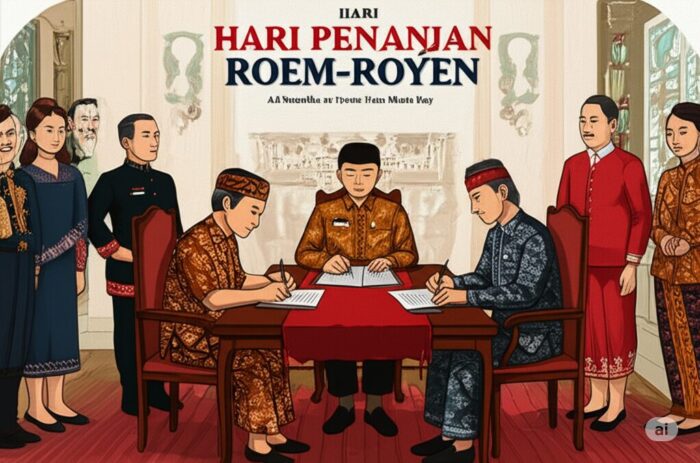Every May 7, Indonesia commemorates Roem-Royen Agreement Day, a significant moment in the nation’s post-independence diplomatic struggle. This agreement was a turning point that paved the way for full international recognition of Indonesia’s sovereignty.
Background of the Agreement
The Agreement was signed on May 7, 1949, in The Hague, Netherlands. The Indonesian delegation was led by Mohammad Roem, while the Dutch side was represented by Jan Herman van Roijen. The agreement came under international pressure, particularly from the United States, which urged the Dutch to halt their military aggression against Indonesia.
Key Points of the Agreement
The agreement included several important commitments:
- The Republic of Indonesia would participate in the Round Table Conference (RTC).
- Indonesia agreed to cease military activities and restore governmental order.
- The Dutch promised to stop military operations and release Indonesian leaders from exile.
Impact and Significance
The Roem-Royen Agreement opened the door for the Round Table Conference later that year, which culminated in the official recognition of Indonesian sovereignty on December 27, 1949. It highlights the crucial role of diplomacy in achieving national goals.
Honoring a Historic Day
Roem-Royen Agreement Day serves as a reminder of the power of negotiation, diplomacy, and peaceful strategy in nation-building. It inspires young Indonesians to appreciate the sacrifices made and to continue safeguarding the country’s sovereignty.
visit too : http://balitraveldiary.com/





